Kidney Transplant Surgery Steps for Foreigners in Iran
The first kidney transplantation in Iran was carried out in 1967 in Shiraz. The Iranian Kidney Transplant Foundation was founded in 1988 to meet and regulate the demand for kidney transplants. Years of experience in the field, modern well-equipped hospitals in large cities including Tehran and Shiraz, world-class surgeons, and reasonable prices have made Iran a hub for kidney transplants. The rate of kidney transplant surgery has been constantly rising, reaching up to 3,500 per year, recently. Recipients will be matched with live unrelated donors through this foundation. Here’s a helpful guide for non-Iranians who may find the kidney transplant surgery steps for foreigners in Iran vague and complicated.
Many patients are opting to travel abroad for kidney transplants (renal transplantation) due to long waiting lists and costly medical procedures in their home countries. Policies on donor eligibility vary – some destinations require organ donors to be a blood relative of the recipient, while others, like Iran, permit donors of the same nationality. Traveling internationally enables access to transplantation at an accelerated timeline and reduced cost, although patients must navigate different regulations regarding qualifying living donors.
In most countries, organ trafficking is against the law and a transplant can only be received from cadavers or living relatives.
Transplant tourism is one of the most unacceptable aspects of medical tourism, implicating travel to another country to receive an allograft from the citizens of that country. Organ shortages in wealthier countries have persuaded patients to preclude organ waiting lists and travel to other countries to get organs, especially kidneys. On the other hand, in many countries, there is no transplant program, and hemodialysis is expensive. So, patients with end-stage kidney disease may have to travel abroad to get a kidney allograft to save their lives.
Kidney transplant in Iran requires approval from two legal authorities: the Ministry of Foreign Affairs and the Ministry of Health; which can issue the necessary permit to the hospital to perform the surgery.
The strict rules and regulations make the process of getting legal approval from government bodies too complicated. Therefore, many have turned to experienced medical tourism companies, to assist them through this process.
At Iran Medical Tours, our experienced support team can facilitate and accelerate the process of kidney transplant surgery in Iran. For affordable convenient medical treatments in Iran, feel free to contact us.
Why Iran Is the Best Destination for Kidney Transplant?
Iran is known for its unique system of compensated organ donation that helps to address the shortage of organs available for transplantation. It has made it more feasible for individuals with end-stage renal disease to receive kidney transplants. This method for kidney transplantation in Iran is called “Living Unrelated Renal Donation” (LURD) or the “Iranian model of living renal transplantation”. This method, which is completely legal and safe and is under the supervision of the Iranian Ministry of Health, has been common since 1988.
8 Reasons to Have a Kidney Transplant in Iran
1. There is no waiting period for kidney transplantation in Iran. As soon as the conditions for the procedure are met, the kidney transplant can be performed immediately.
2. The personalized service in Iran makes getting a kidney transplant there a privilege.
3. Our program offers an all-inclusive package price that covers anything you need for a kidney transplant in Iran.
4. There are highly skilled medical teams with extensive experience in living donor kidney transplantation in Iran since 1988. It leads the Middle East in successful living donor transplants.
5. The cost of medications in Iran is significantly lower than in many other countries. Moreover, patient follow-up care programs support patients from countries lacking sufficient transplant resources.
6. Iran Medical Tours provides a comprehensive, cost-effective stay with expert assistance throughout your medical journey.
7. Iran boasts one of the most advanced tissue typing labs, ensuring highly sensitive transplantation.
8. Flights to Iran are easily accessible from Turkey, Qatar, and Dubai. There are numerous affordable hotels and apartments near hospitals, as well as amazing tourist attractions. You and your family will enjoy your medical trip in Iran, and the renowned Iranian hospitality, deeply rooted in the country’s culture, will make your experience even more memorable.
The Kidney Transplant Surgery Steps for Foreigners in Iran
1. Donor Selection: The process typically begins with selecting a suitable kidney donor. Foreign patients who want to perform a kidney transplant in Iran must be accompanied by a living donor. The donor kidney can be either a relative, a family member, or an unrelated person with the same nationality as the recipient.
sting: For a successful transplant, compatibility between the donor and recipient is crucial. Blood type and tissue matching are assessed to minimize the risk of rejection and improve the chances of a successful transplant.
3. Pre-transplant Evaluations: Before the transplant, both the donor and the recipient undergo a series of comprehensive medical evaluations. These assessments ensure that both parties are physically and emotionally prepared for the procedure.
4. Transplant Surgery: The transplant surgery itself involves removing the healthy kidney from the donor and placing it into the recipient. The surgical team carefully connects the blood vessels and ureters of the new kidney to the recipient’s body.
5. Post-transplant Care: Following the surgery, post-transplant care is crucial for a successful procedure. Patients are closely monitored for any signs of rejection, and medications are prescribed to suppress the immune system and prevent the body from attacking the new organ.
Preparing for a Kidney Transplant in Iran
Those seeking a kidney implant in Iran must go through certain medical and legal steps before the surgery can take place.
Getting Medical Clearance
Both the organ recipient and donor must undergo comprehensive health evaluations in Iran, even if they have had checks done elsewhere. These mandatory pre-surgery tests include:
-
Blood Tests
-
Dental exam
-
Cardiac health check
-
ENT evaluation
-
Gastroenterology screening
-
Endoscopy
-
Full kidney function blood work panel
-
Kidney CT scan
-
Gynecological examination for women
-
Final approval from a nephrologist
Ideally, the medical clearance process takes about 12 to 14 working days. If any health issues come up during the exams, more time may be needed to treat those conditions before approval is given. Once fully cleared, the hospital drafts a letter to legal authorities requesting permission to perform the transplant.
Navigating Legal Approval
Recipients and donors must have their identity and citizenship authenticated by their embassy in Iran. This verification, along with the hospital’s letter, gets submitted to Iran’s Ministry of Health to secure final authorization for surgery, typically in 7-10 working days.
Continuing Dialysis
The patient will need to continue dialysis on their regular schedule at the transplant hospital during the preparation period. Our team schedules these sessions upon arrival. The hospital requires current negative Hepatitis and HIV tests to administer dialysis. These can be taken either in the patient’s home country or after arriving in Iran.
The Key Points of Kidney Transplant Surgery
-
A kidney transplant is a surgical procedure that lasts 2-4 hours.
-
You will be under general anesthesia, which means you will not feel any pain or be awake.
-
The surgeon will choose the best method to place the new kidney in your body and explain it to you before the surgery. You will have tubes in your arms, neck, and bladder to deliver medicines and fluids and to drain your urine.
-
Most people only need one new kidney, but some may need two (called dual kidney transplantation).
-
Your original kidneys are usually left in place.
How Is Kidney Transplant Surgery Performed?
If you are informed that your kidneys are not functioning properly, a transplant may be required. The kidney transplant surgery steps for foreigners in Iran involve a surgical procedure where you receive a kidney from another person via organ transplant. The surgery typically lasts between 2 to 4 hours, during which you will be under anesthesia and won’t experience any pain.
The new kidney will be sewn into your belly through a little opening made by the doctor. The new kidney will be connected to your blood vessels and bladder, so it can function like your old ones. Depending on how it looks, the doctor might remove your old kidneys or just leave them there.
You will have a few tubes in your arms, neck, and bladder to assist with fluids (infusions), medications, or urinating.
You will spend 3 or 4 days in the hospital after surgery to make sure your new kidney is functioning properly. To prevent your body from rejecting the new kidney, you have to take some medicine. Therefore, your body may believe the newly transplanted kidney is not yours and reject it. You also have to eat properly and care for yourself so as not to damage your new kidney.
The whole process can take from ten days to a month, depending on each patient’s condition. Normally, the donor can leave the hospital after 4 days and the recipient after 10-12 days if everything goes well.
A kidney transplant will make you feel better and live longer. On the other hand, there are also some dangers and problems with this approach; for example, getting an infection; bleeding or having a blood clot from the transplant surgery; or rejecting your new kidney. You can talk to your doctor about the pros and cons of a kidney transplant, and whether you are a good candidate for it or not.
Main Criteria for Donating a Kidney:
-
Age: Most programs accept living kidney donors between 18-65 years old. There may be some flexibility on the upper age limit for older donors who are in excellent health.
-
Health: Potential donors undergo medical tests to evaluate their physical health and kidney function. Doctors look for issues like high blood pressure, diabetes, kidney disease, cancer, or heart disease that could make donating risky or cause problems later.
-
Blood type: Ideally, the donor’s blood type should match or be compatible with the recipient, except in rare cases of an AB blood type recipient.
-
Antibody matching: Crossmatching tests are done to ensure the recipient does not have antibodies that would lead to the donor’s kidney rejection.
-
Relation to recipient: Priority is given to donating to a spouse, blood relative, or close friend. Stranger kidney donations are also accepted.
-
Motivation: Donors should make the choice freely without coercion or payment, and understand the risks. Their motivation matters more than their relationship.
-
Support system: Donors need a good support system to help them during the testing phase as well as recovery after surgery.
-
Psychological assessment: Evaluation by a psychologist or psychiatrist may be required to confirm the donor is mentally fit.
The decision also involves consultation with the donor’s family, extensive discussions with the transplant team, and a full consent process covering the surgery and risks.
Living Donor Options
If a family member or someone else offers to donate but is not a good match, a paired donation can be done – your donor gives a kidney to someone else, while you get a kidney from that person’s donor. Chain donation involves multiple donor/recipient pairs.
Staying Healthy While Waiting:
-
Take medications as prescribed and follow your diet and exercise plan
-
Don’t smoke
-
Keep all medical appointments
-
Stay active and reduce stress
-
Notify the transplant team about any health changes
After Undergoing Kidney Replacement Surgery
For many individuals battling chronic kidney disease, renal transplant surgery offers a chance at renewed freedom and improved quality of life.
While it presents a significant step towards reclaiming health, undergoing a kidney transplant operation also involves important considerations regarding post-surgical care, medication adherence, and potential long-term adjustments.
After the Kidney Transplant:
-
Spend several days in the hospital as doctors monitor for complications
-
Expect pain and soreness during recovery
-
Have frequent checkups to ensure the new kidney works properly
-
May need blood tests several times a week to check for rejection
-
Will need to take immunosuppressant medications lifelong to prevent kidney rejection.
Top 3 Kidney Transplant Hospitals in Iran for International Patients:
1. Hasheminejad Hospital: Established in Tehran, the hospital has become one of the best kidney transplant centers in Iran, with great achievements… read more
2. Farhikhtegan Hospital: The largest hospital of the Islamic Azad University is one of the best-equipped hospitals in Tehran… read more
3. Ibn Sina Hospital: Also called Abu Ali Sina, is a medical hub in Shiraz and the largest full-service… read more
Top Selling Packages for Kidney Transplant in Iran
You may also want to know about:
-
Organ transplants in Iran
-
Cornea transplant in Iran
-
Liver transplantation in Iran
-
Dr. Mohammad Hossein Noorbala
-
Bone Marrow Transplant in Iran
-
Urology Treatments in Iran


